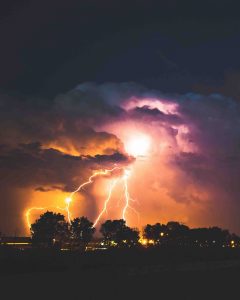 The recent hurricanes in Texas and Florida have illuminated serious deficiencies in many nursing homes and assisted-living facilities, according to a report from National Public Radio. More specifically, many skilled nursing facilities are not prepared to handle an emergency situation, from a power outage in a severe storm to structural damage caused by a natural disaster such as an earthquake. If nursing homes, assisted-living facilities, and RCFEs in Carlsbad are not prepared to keep their residents safe in the event of one of these emergency situations, then elderly patients and residents can suffer injuries as a result of elder neglect.
The recent hurricanes in Texas and Florida have illuminated serious deficiencies in many nursing homes and assisted-living facilities, according to a report from National Public Radio. More specifically, many skilled nursing facilities are not prepared to handle an emergency situation, from a power outage in a severe storm to structural damage caused by a natural disaster such as an earthquake. If nursing homes, assisted-living facilities, and RCFEs in Carlsbad are not prepared to keep their residents safe in the event of one of these emergency situations, then elderly patients and residents can suffer injuries as a result of elder neglect.
Nursing home neglect often arises in situations where staff members at facilities did not intend to do harm to patients, but due to understaffing and other problems, neglect results in serious and sometimes fatal injuries.
Failing to Prepare for “Basic Contingencies”
Natural disasters and other “acts of God,” so to speak, can cause devastating damage to a nursing home’s infrastructure, which can lead to ineffective care for residents. Even when large-scale disasters do not strike, the NPR report suggests that in certain cases, “nursing homes failed to prepare for even the most basic contingencies” in the event of a minor to moderate emergency situation.
For example, some nursing homes do not have plans in place to get patients who are wheelchair-bound from an upper-level floor down to the ground level. In other situations, employees did not have codes to unlock gates in order to safely evacuate residents, while a fire at another nursing home revealed that staff members did not know how to follow an evacuation plan in order to remove patients in the most effective and safest manner. Emergency-planning rules are extremely important for nursing homes and assisted-living facilities in Carlsbad and throughout the state, and facilities can face violations and penalties if they fail to have emergency-planning rules in place.
In the last four years, NPR reports that nursing home inspectors have issued approximately 2,300 emergency-planning rule violations. Even if the nursing home’s actions (or lack thereof) do not rise to the level of a violation, they may still be putting patients at risk. For example, about one-third of all U.S. nursing homes have received citations for “failing to inspect their generators each week or to test them monthly.” Without generators, nursing home patients who rely on certain kinds of care can sustain life-threatening and fatal injuries.
Preparing for Emergencies at Nursing Homes
What should nursing homes do to ensure that seniors in Southern California remain safe in the event of an emergency situation? First, nursing homes are required to comply with federal disaster-planning rules, according to NPR. In California alone, “53 percent of nursing facilities have been cited for at least one of two deficiencies related to emergency preparation: training employees what to do in an emergency and carrying out unannounced staff drills; or having a detailed written plan for disasters and emergencies, such as fire, severe weather, and missing residents.” In California in particular, high temperatures can result in dangerous conditions for seniors, highlighting the need for working generators to run air condition systems.
Facilities should write, implement, and test out emergency evacuation plans so that staff members know what to do and have experience carrying out the steps of a successful evacuation plan. At the same time, test runs cannot necessarily prepare a facility for everything. Yet having a plan in place and testing it out could end up saving the lives of seniors.
Do you have questions about filing an elder neglect claim? A Carlsbad nursing home neglect lawyer can help. Contact the Walton Law Firm today for more information.
See Related Blog Posts:
Harmful Off-Label Drug Targets Nursing Home Residents with Dementia
Consent and Capacity in Nursing Home Abuse Cases
(image courtesy of Max LaRochelle)
 Southern California Nursing Home Abuse Lawyer Blog
Southern California Nursing Home Abuse Lawyer Blog








